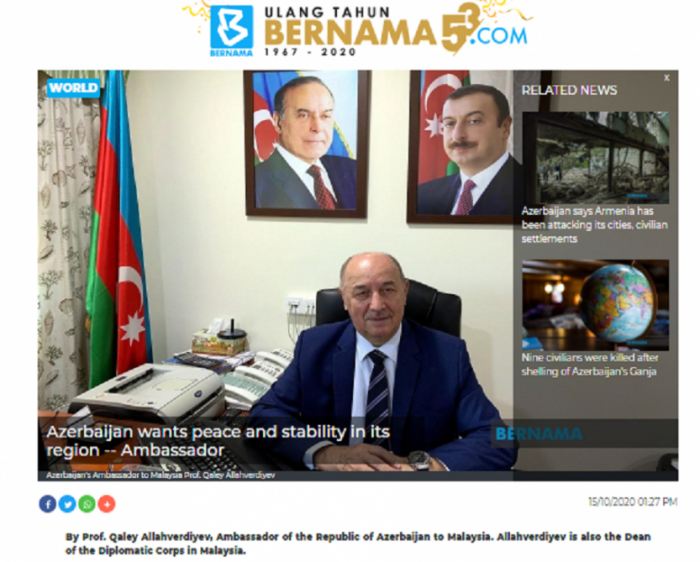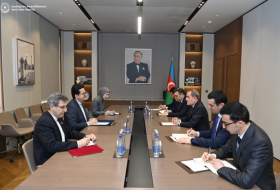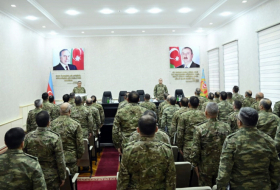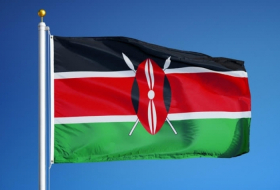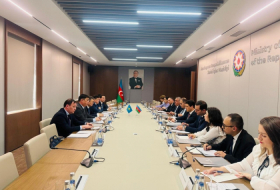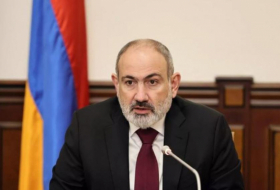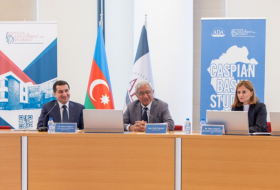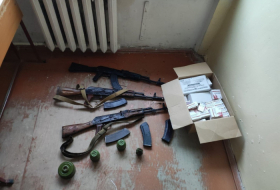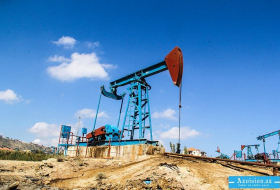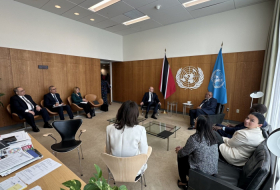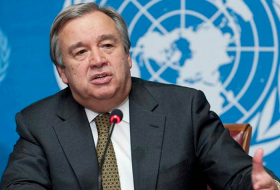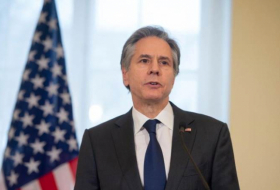Headlined “Azerbaijan wants peace and stability in its region”, the article reads:
“While the world fights COVID-19 pandemic and its emerging socio-economic burdens, Azerbaijan has to cope with a double challenge these days.
As it is known from the latest international news reports, in the early hours of Sept 27, 2020, the armed forces of Armenia launched attacks against positions of Azerbaijan, causing human casualties and raising the tensions to a new dangerous level.
Alongside military positions, Armenia blatantly targeted civil settlements of Azerbaijan by using heavy artillery fire and other large-calibre weapons from the very beginning clashes. Even today, Armenia has not stopped shelling civilian population of Azerbaijan by violating overtly its fundamental obligations under international humanitarian law.
According to the recent information of the Prosecutor General’s Office of Azerbaijan, 43 civilians, including children and elderly have been killed, 214 civilians have been wounded as a consequence of heavy artillery shelling (October 14, 2020). At the same time, 1505 houses and 66 multi-apartment residential buildings have fallen into disrepair, and 277 civil facilities such as hospitals, schools, kindergartens, and graveyards have been damaged as a result of the ongoing aggression.
In its Interim report dated October 4, 2020, Office of the Commissioner for Human Rights (Ombudsman) of Azerbaijan stated that “the armed forces of Armenia do not even spare ambulances and medical facilities in a blatant violation of international humanitarian law, in particular, Article 35 of the First Geneva Convention of 1949”.
Actually, this attack is the continuation of the latest provocations of the Armenian side, including its armed attack on July 12-16 and the sabotage-reconnaissance group’s attempt on August 23, 2020.
To briefly sum up the background of the Armenia - Azerbaijan conflict, it started with the Armenians’ open territorial claims to Azerbaijan’s historical lands and ethnic provocations in 1988.
Taking advantage of the political instability and internal struggles that Azerbaijan was facing after the dissolution of the Soviet Union, Armenia, in late 1991 and early 1992 with external military assistance, initiated large-scale combat operations in Nagorno-Karabakh which is internationally-recognised part of Azerbaijan.
In 1993, the United Nations (UN) Security Council adopted resolutions 822, 853, 874 and 884 reaffirming respect for the sovereignty, territorial integrity and inviolability of the international borders of Azerbaijan and demanding the immediate cessation of all hostile acts and the immediate, complete and unconditional withdrawal of occupying forces from all occupied regions of Azerbaijan, and calling for ensuring the return of refugees and displaced persons to their homes.
On May 12 1994, the ceasefire was established. In 1995, the OSCE Chairman-in-Office issued a mandate for the Co-Chairmen of the Minsk Process – the Russian Federation, France and the USA – to mediate a peaceful resolution of the conflict.
As His Excellency President Ilham Aliyev mentioned in his several speeches, today in Azerbaijan there are thousands of Armenians who live in peace, and dignity. But in Armenia, all Azerbaijanis have been expelled. Armenia’s population is 99 percent Armenians.
In response to the last military provocation which started from September 27, 2020, Azerbaijan reacted immediately with counteroffensive measures. Conducting successful peace enforcement operations, national defence forces of Azerbaijan liberated a considerable number of settlements that were under the occupation of Armenia for almost three decades.
Following the talks among the Azerbaijani Foreign Minister Jeyhun Bayramov, Russian Foreign Minister Sergey Lavrov and Armenian Foreign Minister Zohrab Mnatsakanyan with the mediation of the Russian Federation on 9-10 October, the sides reached agreement on a humanitarian ceasefire from 12:00 pm on October 10, 2020.
However, shortly after the agreement publicly announced, the armed forces of Armenia launched a new phase of military attacks simultaneously in the several directions of Azerbaijan. On the night of October 11, the international society witnessed a new human tragedy which bears solid tokens of a war crime.
On that night Ganja, the second-largest city in Azerbaijan and far beyond the frontline, came under ballistic missile attack by the Armenian armed forces. The attack killed ten civilians and injured 35 others, including minors. The missile was launched from Vardenis town of Armenia.
On the same day, the Armenian side launched a second ballistic missile attack on Minghachevir, another city of Azerbaijan located 104 km away from the border with Armenia. The missile fell in close proximity to the building of a Thermal Power Plant, which is located in the Mingachevir Water Hydropower Complex, the largest of its kind in the South Caucasus.
In its statement dated October 11, Ministry of Foreign Affairs of Azerbaijan strongly condemned these acts of aggression by Armenia and called on the international community “to take decisive steps to force the aggressor Armenia to comply with international law and its international obligations”. The Ministry stressed that “the full responsibility for the situation in the region lies with the Armenian political and military leadership”.
Meanwhile, the political and military leadership of the Republic of Azerbaijan has declared on numerous occasions since the beginning of counter-offensive operations that during the peace enforcement operations civilians residing in the occupied territories, as well as civilian infrastructure therein, will not be targeted.
In one of his latest interviews to the international media, President Ilham Aliyev stated very obviously that “Armenians used to live in Baku. We did not have any problems. We want to live together again - to live again as good neighbours with Armenia. The Armenians living in Nagorno-Karabakh are our citizens. We recognise them as such. I hope that after the end of this aggressive policy, our peoples will reconcile”.
In the meantime, Armenia’s last attacks on its neighbouring Azerbaijan shouldn’t be considered as an unexpected development. Created by the political-military leadership of Armenia, there are several backdrop dynamics that have been leading the conflict situation to the current tense level. In this regard, I would like to refer to the latest National Security Strategy of Armenia which was declared in July 2020.
This paper boldly defines the strategic goals of Armenia in the negotiation process with Azerbaijan as safeguarding the outcomes of war. And most importantly, the new national security strategy of Armenia based on an approach of “new war for new territories”.
So, it is not surprising for attentive observers that Armenia has been constantly developing conceptual and doctrinal ground of its irredentist policy. All these and other attempts were footsteps of a new war against Azerbaijan.
In doing so, Armenia, by targeting the sovereignty and territorial integrity of Azerbaijan, clearly disregards the norms and principles of international law. In this respect, the international community is expected to demonstrate principled position more than ever not only to stand by Azerbaijan’s rightful cause but also to rescue basic commitments of international law and justice.
Azerbaijan wants peace and stability in its region. However, the illegal presence of the armed forces of Armenia in the occupied Nagorno-Karabakh and surrounding regions of Azerbaijan is a serious threat to regional peace and security. Today, Azerbaijan is a vibrant regional partner with great potential in the Caucasus and Caspian Basin. Its dynamic economy and rich natural resources enable Azerbaijan to make more contributions to regional peace and cooperation.
In the conclusion, I am very honoured to renew to the esteemed Government of Malaysia our appreciation for demonstrating a clear and principled stance on the sovereignty and territorial integrity of UN Member States.
And also, my Government highly values relations and cooperation with Malaysia as one of the committed Member States of the Non-Aligned Movement (NAM) which issued a Special Declaration on October 9, 2020, extending its firm support for the independence, sovereignty and territorial integrity of Azerbaijan.”
More about: #Malaysia #Azerbaijan








